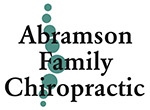Chiropractic Helps Radicular Low Back Pain Patients Avoid Opioids
Among a group of more than 2,300 patients with new-onset radicular low back pain, those who initially sought treatment from a doctor of chiropractic were 68% less likely to receive a subsequent prescription for tramadol, a less potent opioid, in the following year than patients who first received usual medical care. BMJ Open, May 2024
Risk Factors for Chronic Post-Concussion Headaches
Headaches are common in patients recovering from traumatic brain injury (TBI), with most resolving within three months. However, 1 in 4 such individuals will continue to experience headaches for a year or longer. An analysis of data from the Collaborative European NeuroTrauma Effectiveness Research in Traumatic Brain Injury study identified the following predictors for recurrent headaches in TBI patients: younger age, severe TBI symptoms, fatigue, neck pain, and vision problems. Journal of Headache and Pain, March 2024
Probiotics In Kombucha Mimic Fasting
Reduce Fat Stores. An animal study conducted at the University of North Carolina at Chapel Hill found that microbes in kombucha tea can alter gene expression related to fat metabolism in worms in a manner similar to intermittent fasting. Future research is needed to determine if these benefits extend to humans. PLOS One, April 2024
Active Lifestyle May Protect Against Pain Linked to Prolonged Sitting at a Desk
An analysis from a long-term study that included more than 2,000 German workers found that the risk for musculoskeletal pain in employees who spend most of their workday sitting is 30-46% greater among those who rarely, if ever, engage in leisure time physical activity. Journal of Occupational Medicine and Toxicology, March 2024
Mood Disorders May Affect Teen Driving Privileges
According to a recent study, adolescents with anxiety, depression, or bipolar disorder are 30% less likely than their peers to obtain a driver’s license. Additionally, teenagers with mood disorders are more likely to be involved in motor vehicle collisions and to lose their license. JAMA Network Open, April 2024
Blood Test Shows Promise in Early Detection of Pancreatic Cancer
Due to nonspecific symptoms, pancreatic cancer is often only diagnosed at advanced stages when a good outcome is less likely. Researchers have developed a blood test that looks for small RNA particles and larger DNA fragments linked to early-stage pancreatic cancer with a 97% accuracy. Once approved, it’s hoped this blood test can serve as a non-invasive tool for early pancreatic cancer detection. American Association for Cancer Research, April 2024
“Losing an illusion makes you wiser than finding a truth.” ~ Ludwig Borne
This information should not be substituted for medical or chiropractic advice. Any and all health care concerns, decisions, and actions must be done through the advice and counsel of a health care professional who is familiar with your updated medical history.
